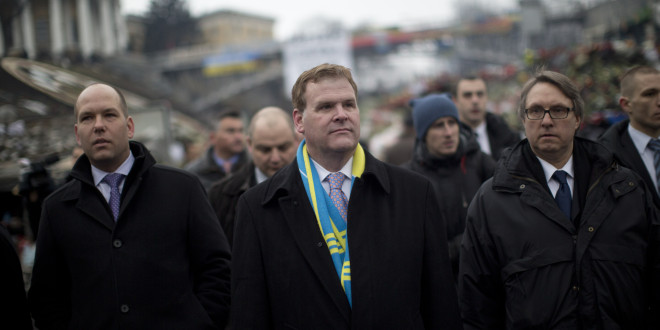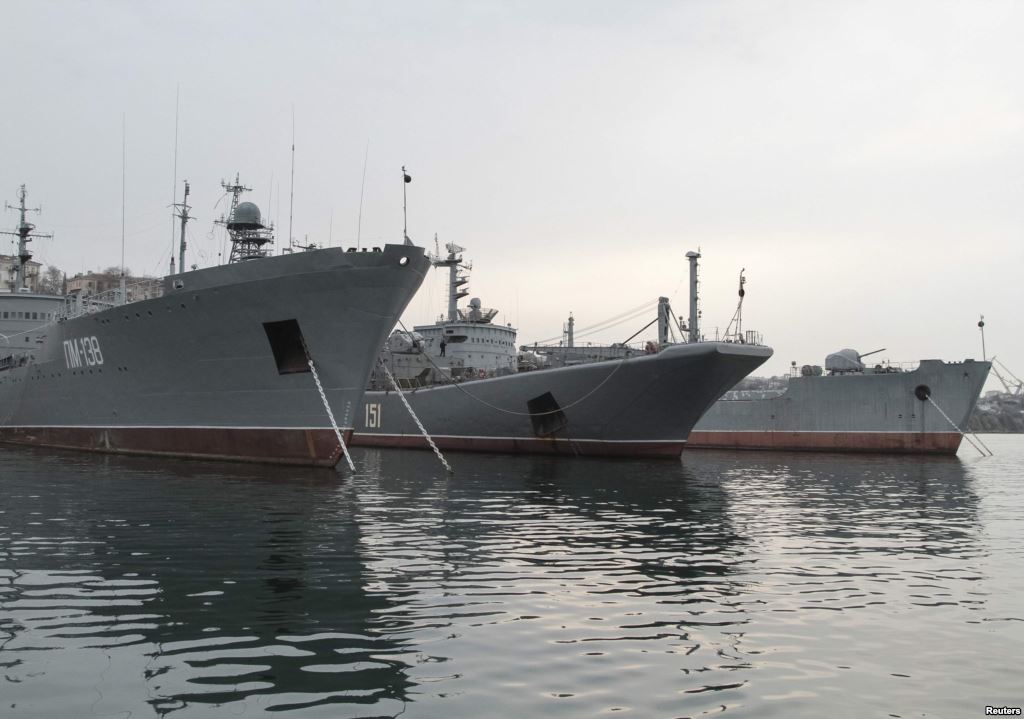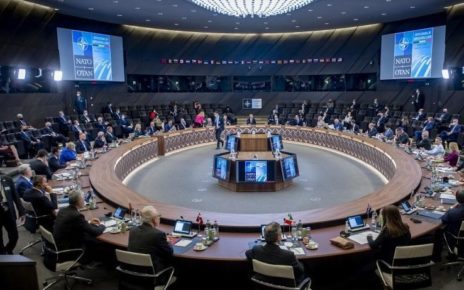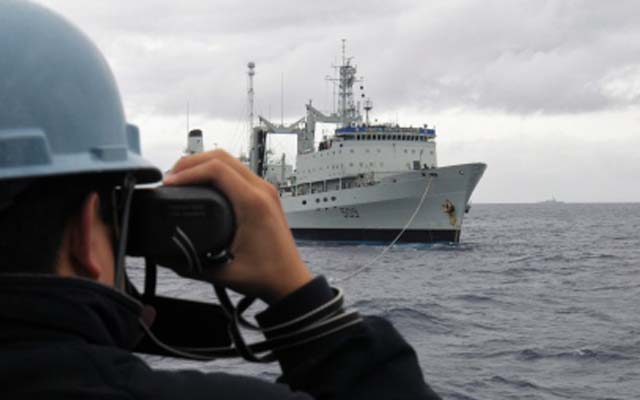
As the streets of the Maidan continue to be marred with violence and tension mounts after Russian soldiers and Kalashnikov-wielding pro-Russian militia persist with their provoking intrusion into Ukraine’s Crimea, Canada along with its G-7 partners is under pressure to figure out its next course of action as a looming international battle in the Eastern European minefield threatens to spiral into a new Cold War.
Ominous developments, specifically last week’s fallout of a ‘yes vote’ to a reunification with Russia in the impromptu Crimean referendum, have forced several countries, particularly Canada, to employ stern, bellicose rhetoric in lambasting Russia over its illegal annexation of the peninsula. Canada’s Foreign Affairs Minister John Baird unequivocally denounced Russian president, Vladimir Putin’s military intervention in the beleaguered Ukraine, at one point going so far as to compare Putin’s actions with Hitler’s. When it concerns the Ukrainian conflict, the Canadian government has offered no subtleties, remaining one of the country’s most steadfast Western supporters; backing the preservation of its territorial integrity.
Why is Canada talking tough on Ukraine? The two countries have a long and cordial bilateral relationship. The friendship has been notably characterized by the 1.2 million Canadians of Ukrainian ethnic origin who call this country home. Equally important is Canada’s role in being the first NATO member to recognize Ukraine’s independence from the USSR in 1991, and supporting the country’s desire to join the Alliance. Canada was also a vocal proponent of Ukraine’s successful bid to gain a seat at the WTO.
Through every twist and turn, Ottawa has stood by Ukraine. Since the 2004 Orange Revolution, Canada has sent election observers and, through the Canada Fund, has contributed democracy assistance and training to Ukrainian politicians, political parties and civil society groups.
It is Ottawa’s sustained commitment to Ukraine, articulated in words and demonstrated in action, which gives the country influential credibility on Ukrainian matters within the international community. For this reason, Canada has earned both the responsibility and the prerogative to stand with Ukraine during the existing political crisis.
Thus far, Prime Minister Stephen Harper deserves praise for demonstrating Canada’s uncompromising international leadership on the Ukrainian crisis, working also with opposition leaders so as not to turn the situation into a partisan issue. The government has called for the G-8 to oust Russian from membership, withdrew Canada from preparations for a summit in Sochi, recalled its ambassador from Moscow, suspended all planned military exercises with Russian forces, and slapped sanctions and travel restrictions on senior level Russians and Ukrainian officials from the Yanukovych regime. Canada has also joined an unarmed military observation mission to the Crimea and contributed $220 million as part of wider international aid efforts to promote sustainable economic growth and democratic governance under the new Ukrainian government.
Still, there is more for Canada to do. Last Saturday, Prime Minister Stephen Harper the first G-7 leader to touch down in Kyiv after last month’s coup to discuss the evolving situation there with Prime Minister Arseniy Yatsenyuk and reiterate Canada’s support to the country’s transitional government. Harper used the meeting to further condemn Russia’s repressive and deplorable tactics, as well as strongly discourage its invasion of the Crimean peninsula. Canada is positioned well to talk tough to Moscow considering relatively meagre economic side effects. Russia accounts for less than half a percentage point of Canada’s total world trade. Moreover, as a target for Canadian investment, Russia ranks 18th. Russian investment in Canada is even less important.
Beyond this, however, Canada and its G-7 allies should send military assets closer to the region, to demonstrate readiness to go beyond mere statements and media conferences. Although the group warned last week that any move by Russia to annex Crimea would have “grave implications,” NATO, as usual, seems unsure about how to respond, despite Putin’s very palpable threat to all of NATO’s new Eastern members. Unless NATO takes a clear and deployed stand, Mr. Putin will continue to capitalize on the West’s weakness. While economic and diplomatic pressure must be maintained, Harper should take every opportunity to sway his colleagues to ensure that diplomacy in dealing with Russia should be adamant enough to include an implied use of force. Without this, prospects for a diplomatic solution will eventually fail and Putin can win in striking blows to Ukrainian sovereignty.
Among other measures and non-governmental aid efforts, Ottawa could put a military unit on standby for potential deployment as part of a multidimensional stabilization force. As it did in 2004, Canada can also send a military field hospital. This would put Canadian soldiers on ground for security, as well as doctors and nurses for care. Harper should also send a team of election observers in time to monitor Ukraine’s presidential elections at the end of May. In strengthening the interim government, Canada, too, can help by offering guidance to both government and opposition leaders; assisting in the rebuilding of Ukrainian policing forces, as well as developing mechanisms of social inclusion for its Russian minorities. The Canadian government should call on former premiers like Roy Romanow and Ed Stelmach – both of Ukrainian descent – to assist in this process.
Being a reliable friend to Ukraine, Canada must do more to assure that the basic values Canadians deeply respect and share – the rule of law, democracy and basic human rights – will also be safeguarded abroad, above all within strategic allied nations. Canada, therefore, should push for greater coordination among the G-7 nations; to stop dithering collectively and start acting more vigorously against abusers, like Russia. Otherwise, in the end, Western democracies will be the losers. Euromaidan calls for this; Canadian sovereignty underscores this. So does global security.




